Beth Kephart's Blog, page 271
November 20, 2010
A metaphor is:
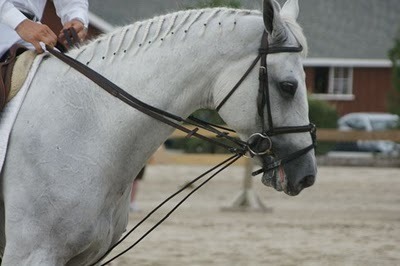 "Metaphor is the juxtaposition of disparate elements of the world in which an unsuspected commonality, an illuminating partial likeness, has been discovered, and the more unlikely the juxtaposition, the greater the consequent sensation of the unifying of the world; and so the range of a writer's metaphor is a measure of the range of his cognition."
"Metaphor is the juxtaposition of disparate elements of the world in which an unsuspected commonality, an illuminating partial likeness, has been discovered, and the more unlikely the juxtaposition, the greater the consequent sensation of the unifying of the world; and so the range of a writer's metaphor is a measure of the range of his cognition."— Leon Wieseltier, in his gorgeous New York Times Book Review review of Saul Bellow: Letters




Published on November 20, 2010 15:25
See you in Orlando (?)
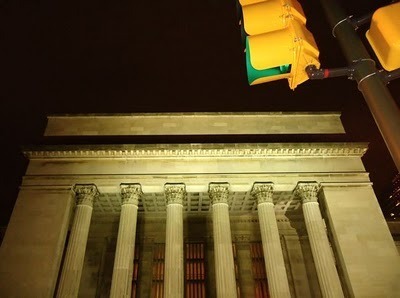 This is Thirtieth Street Station, Philadelphia, 'round midnight, snapped with my raspberry-colored SONY digital that is a lot happier taking wide angles than it will ever be deployed in an up-close shot. I'll be taking that camera with me on my quick jaunt to the ALAN conference, in Orlando, and I'll also be taking my love of this city as I talk about Dangerous Neighbors on an historical fiction panel also featuring Susan Campbell Bartoletti and Jeanette Ingold.
This is Thirtieth Street Station, Philadelphia, 'round midnight, snapped with my raspberry-colored SONY digital that is a lot happier taking wide angles than it will ever be deployed in an up-close shot. I'll be taking that camera with me on my quick jaunt to the ALAN conference, in Orlando, and I'll also be taking my love of this city as I talk about Dangerous Neighbors on an historical fiction panel also featuring Susan Campbell Bartoletti and Jeanette Ingold.(And once I see dear fellow Egmont USA author James Lecesne there's no telling what I'll be talking about!)
Maybe I'll find some of you there. I hope so.




Published on November 20, 2010 08:03
November 19, 2010
Mayor Michael Nutter, First Book, and Yours Truly: A Few New Scenes
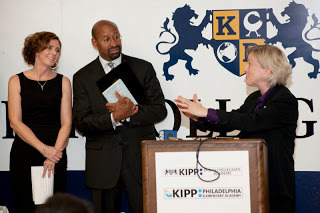
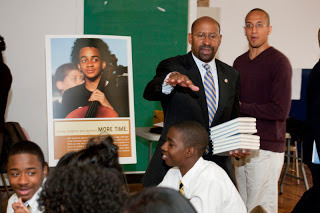
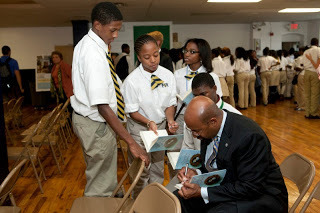
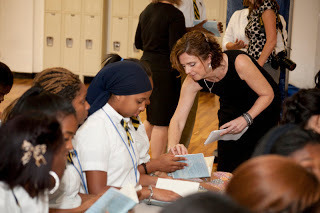 Readers of this blog know that I had the privilege of spending part of an afternoon with the students of KIPP, in the company of Philadelphia Mayor Michael Nutter, in celebration of First Book, that wonderful organization dedicated to ensuring that every child has a book to call his or her own. More than 100 copies of Dangerous Neighbors were given to the ninth graders that day, a chance for the Mayor, First Book President Kyle Zimmer, and me to spend some time with young Philadelphia readers.
Readers of this blog know that I had the privilege of spending part of an afternoon with the students of KIPP, in the company of Philadelphia Mayor Michael Nutter, in celebration of First Book, that wonderful organization dedicated to ensuring that every child has a book to call his or her own. More than 100 copies of Dangerous Neighbors were given to the ninth graders that day, a chance for the Mayor, First Book President Kyle Zimmer, and me to spend some time with young Philadelphia readers.This morning, Regina Cronin sent along the photographs taken by Michael Tolbert—images that return to me memories of a most spectacular day. Thank you, Regina and Michael (and First Book and Mr. Mayor).




Published on November 19, 2010 08:40
Leaf Loss
 They had held on the leaves, my leaves. The persimmon of the maple trees. The sun of the ornamental pear trees. The oaks, with their resilient hints of green. But in the night (two nights ago), the winds blew hard, and the rains fell slanted, and the leaves could hold on no more.
They had held on the leaves, my leaves. The persimmon of the maple trees. The sun of the ornamental pear trees. The oaks, with their resilient hints of green. But in the night (two nights ago), the winds blew hard, and the rains fell slanted, and the leaves could hold on no more. Autumn escaped me. It always does. And now winter is blowing in.




Published on November 19, 2010 07:02
November 18, 2010
You Are My Only (an excerpt)
@font-face {
font-family: "Arial";
}@font-face {
font-family: "Cambria";
}p.MsoNormal, li.MsoNormal, div.MsoNormal { margin: 0in 0in 0.0001pt; font-size: 12pt; font-family: "Times New Roman"; }div.Section1 { page: Section1; }
My Keds make whisper hurry hurry sounds across the cement walk. In the broken places, in the cracks, it's getting sloppy. I feel a dampness sinking in around my toes and wish I'd remembered socks, but I'm not going back and it isn't cold, just a little chilly beneath the eye of the moon. They searched the whole woods—the police and their dogs. They went partway up the railway tracks on the opposite side of the trees, until, with the dark and the rain, they called for quitting and asked for more photos, said they would call out all the forces. I don't know where they'll go tomorrow, what leads they think they have, who they imagine would do this, or why, what time they'll drink their coffee and start. But I can't wait. I won't. The moon is my lamp, and I follow. My heart is a sick, soft place, and my lungs are very small.— excerpt, You Are My Only (forthcoming from Egmont USA, fall 2011)




Published on November 18, 2010 12:27
November 17, 2010
When will you, can you, write the perfect book?
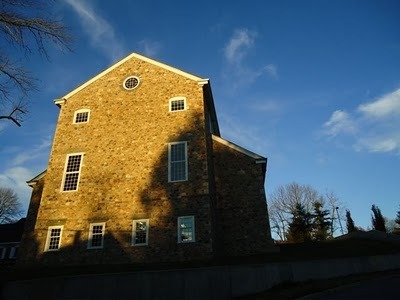 I spoke, last night, about having not yet written the perfect novel. I wonder how many authors ever really think they have? But this morning, my father wrote, and then another (we call her Soup), following up with that train of thought, both asking a version of, Do you see your writing coming closer to the perfect book?
I spoke, last night, about having not yet written the perfect novel. I wonder how many authors ever really think they have? But this morning, my father wrote, and then another (we call her Soup), following up with that train of thought, both asking a version of, Do you see your writing coming closer to the perfect book?And the answer, honestly, is this: I am taking more risks. I am pulling harder on language. I am going darker and deeper, and coming up lighter; I am balancing more ambiguity for longer stretches; I am working those broader swaths of gray. I want to achieve a work of art that lasts. I want to be able to read every line in an entire book aloud and not be swept through—at any point—with the sudden desire to change a word, drop a prefix.
Writing is hard. If I thought I'd mastered it already, I'd be done. I don't want to be done. Not yet.




Published on November 17, 2010 18:04
Eating our cake (too)
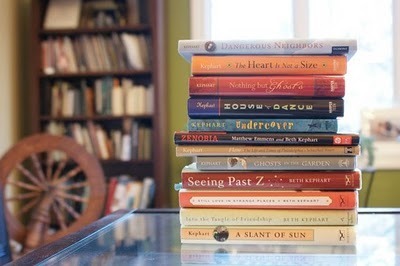 Last night, at the Radnor Memorial Library, I had the chance to look back over a lifetime of wanting and dreaming. Opportunities such as that one don't come around too often, and they only exist because other people make them happen. And so this morning I would like, first, to thank Pam and Molly, of the library, dear souls both, who set the chairs in perfect rows, ordered in a beautiful cake, mixed up a cranberry punch, and (mostly) put up with me and my projection nerves. Thank you to Hannah of Children's Book World, who arrived with so many books in hand. Thank you to Jack, who filmed the talk. Thank you to my husband, Bill, whose tech know-how enables me to tell the stories I want to tell. Thank you to my dad, who comes every time. Thank you to my friends who kept the promises they'd made and trekked out in the rain. Thank you to the Radnor community and to the teachers in neighboring districts and to the students who will be writers one day.
Last night, at the Radnor Memorial Library, I had the chance to look back over a lifetime of wanting and dreaming. Opportunities such as that one don't come around too often, and they only exist because other people make them happen. And so this morning I would like, first, to thank Pam and Molly, of the library, dear souls both, who set the chairs in perfect rows, ordered in a beautiful cake, mixed up a cranberry punch, and (mostly) put up with me and my projection nerves. Thank you to Hannah of Children's Book World, who arrived with so many books in hand. Thank you to Jack, who filmed the talk. Thank you to my husband, Bill, whose tech know-how enables me to tell the stories I want to tell. Thank you to my dad, who comes every time. Thank you to my friends who kept the promises they'd made and trekked out in the rain. Thank you to the Radnor community and to the teachers in neighboring districts and to the students who will be writers one day. I worried the weather would keep you away. Thank you for being brave.




Published on November 17, 2010 04:19
November 16, 2010
Radnor Memorial Library Talk: A glimpse at this evening's remarks
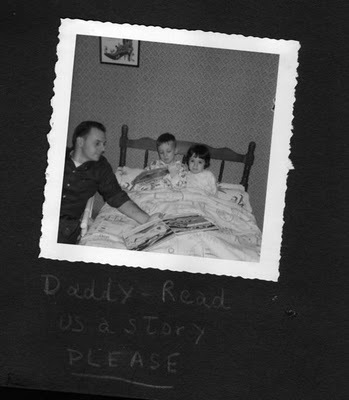
@font-face {
font-family: "Cambria";
}p.MsoNormal, li.MsoNormal, div.MsoNormal { margin: 0in 0in 0.0001pt; font-size: 12pt; font-family: "Times New Roman"; }div.Section1 { page: Section1; }
Where does our love for stories begin? Who yields to us the possibilities? Of what is an author made—or a dreamer? It started for me, way back then, with parents who loved me, and who loved one another. This photograph is taken from a scrapbook that my mother began for my father in the early 1960s. It was his Christmas present. My parents were only just beginning to build their lives, but my mother understood that it was important both to live well—alivedly, happily, with music, with puppets, with hula hoops and fanciful cakes—and to remember how that living had gotten done. She captioned the photos she collected for my father, pasted them onto black paper, and in her Christmas note to him wrote that, "It's not very evident at times, but I did restrain myself from being too corny."
Tonight I'm seeking patterns and meaning in the lyric of my own life. I'm questing after answers: Where does our love for stories begin, and how do we love those stories back?Please join us at the Radnor Memorial Library, 114 West Wayne Avenue, Wayne, PA, for a talk about life, my city, and Dangerous Neighbors.




Published on November 16, 2010 04:43
November 15, 2010
Poets are solitaires, with a heightened sense of community...
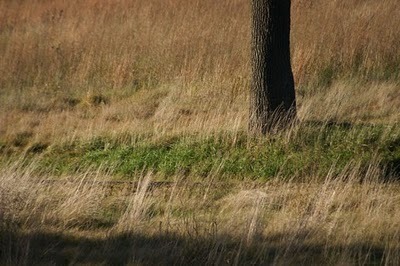
Bill Moyers: Do you remember the first time you truly experienced words, somehow, as part of your being?
Stanley Kunitz (poet): I used to go out into the woods behind our house in Worcester, Massachusetts, and shout words, any words that came to me, preferably long ones, just because the sound of them excited me. "Eleemosynary," I recall, was one of my favorites. "Phantasmagoria" was another.
***
Moyers: Once in East Africa on the shore of an ancient lake, I sat alone and suddenly it struck me what community is. It's gathering around the fire and listening to somebody tell a story.
Kunitz: That's probably how poetry began, in some such setting. Wherever I've traveled in the world, I've never felt alone. Language is no barrier to people who love the word. I think of poets as solitaires with a heightened sense of community.
— from the indispensable The Language of Life: A Festival of Poets (Bill Moyers)




Published on November 15, 2010 06:35
November 14, 2010
Take One Candle Light a Room by Susan Straight/Reflections
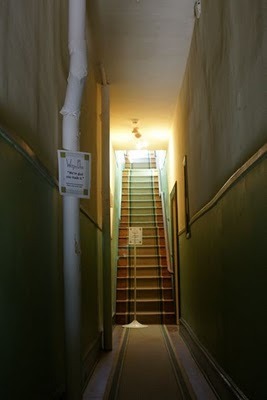 I first met Susan Straight back in 2001, at the National Book Awards festivities. She was there because her novel, Highwire Moon, had been nominated for fiction the same year Jonathan Franzen's The Corrections was put into the mix. I was there chairing the Young People Literature's jury. We'd been writing to each other and talking on the phone, but Susan's southern California and I'm Philadelphia, and it took a touch of fate to bring us face to face, blue eye to green, her daughter saying hello to my son, both of us dangling fancy earrings.
I first met Susan Straight back in 2001, at the National Book Awards festivities. She was there because her novel, Highwire Moon, had been nominated for fiction the same year Jonathan Franzen's The Corrections was put into the mix. I was there chairing the Young People Literature's jury. We'd been writing to each other and talking on the phone, but Susan's southern California and I'm Philadelphia, and it took a touch of fate to bring us face to face, blue eye to green, her daughter saying hello to my son, both of us dangling fancy earrings.Two weeks ago, Susan sent a copy of her newest book my way. It's called Take One Candle Light a Room, and in the cracked places of these past few nights, I've been reading. The book is complex, and alive. It sounds just like Susan (patois and poetry), and if you want to see Los Angeles through the eyes of a "walkin fool," if you want to try to imagine how the legacy of slavery passes down through the prickled blood, if you want to root for a boy who can write poems and dream big but nonetheless finds himself a gun-toting refugee from the law, let Take One Candle take you there.
Susan's heroine is a southern California, light-skinned travel writer named Fantine Antoine. She's not married, she's not settled, she goes from place to place to see. But there's somebody she does love hard, somebody who has power over her, and that's this poem-writing 22-year-old boy named Victor, the son of her murdered best friend. When Victor gets in trouble with the law, Fantine Antoine runs after him, toward Louisiana, which takes her, in so many ways, running the long way home. This is a violent story, but there's also love in it—love for places, love for language, love for this boy, who has a talent with words. Here, for example, is what Victor can do on a page:
The Villas—#24—The BalconyCaroline Leavitt, whose CarolineLeavitville blog is essential reading for writers, interviewed Susan recently. I loved reading what both had to say.
What you don't understand
Is
The snarling jeweled nightbird can be
Beautiful
Even when it wakes you up at two
flying in circles
A silver rope a silver beam tied down? tethered anchored
No escape for the pilot
Either




Published on November 14, 2010 05:41




